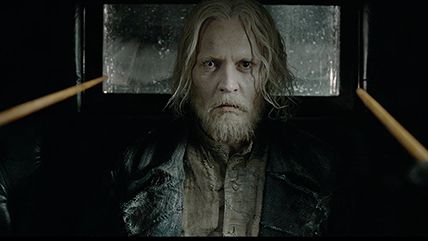The Crimes of Grindelwald

Like its plot overall, the social justice messages are rather muddled in Fantastic Beasts: The Crimes of Grindelwald, the newest Harry Potter spinoff feature film.
There can be no doubt that Gellert Grindelwald is the bad guy in this prequel series. The movie makes excruciatingly clear that the goal of its titular character is to build an army of witches and wizards—purebloods, preferably—to conquer and rule the nonmagic world. (He stops just shy of advocating outright genocide of Muggles, noting that "beasts of labor" will always be necessary.) Yet writer J.K. Rowling jarringly has her villain waging a sort of "love is love" campaign: He wins at least one good-hearted character over to his cause by demanding an overthrow of prejudiced laws banning intermarriage between magical folk and their nonmagical neighbors.
Perhaps it was a considered choice on Rowling's part. In reality, neither side in most political conflicts is totally without fault or flaw. Persuasive and even honorable arguments often are exploited to rally support for horrifying behaviors. Still, to offer that theme up with minimal development in what is ultimately a children's story mostly just leaves the audience befuddled.
This article originally appeared in print under the headline "The Crimes of Grindelwald."


Show Comments (1)